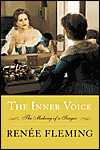Recently in Books
A musical challenge to our view of the past
In Musical Exoticism (Cambridge 2011) Ralph P. Locke undertook an
extensive appraisal of the portrayal of the ‘Other’ in works dating
from 1700 to the present day, an enquiry that embraced a wide range of genres
from Baroque opera to Algerian rap, and which was at once musical, cultural,
historical, political and ethical.
Is it okay to tweet during a concert, if it allows those who couldn’t attend to engage with the performance and the music? Or is it really just distracting, on top of all the coughing?
RILM Abstracts of Music Literature is an international database for
musicological and ethnomusicological research, providing abstracts and indexing
for users all over the world. As such, RILM’s style guide (How to Write
About Music: The RILM Manual of Style) differs fairly significantly from
those of more generalized style guides such as MLA or APA.
Opera in the British Isles might seem a rather sparse subject in the period 1875 to 1918. Notoriously described as the land without music, even the revival of the native tradition of composers did not include a strong vein of opera.
Heldentenor Jay Hunter Morris tells us about the lean times when the phone did not ring, as well as those thrilling moments when companies entrusted him with the most important roles in opera.
Commonly viewed as a ‘second-rate’ composer — a European radical persecuted by the Nazis whose trans-Atlantic emigration represented a sell-out to an inferior American popular culture —
Although part of a series entitled Cambridge Introductions to Music, Robert Cannon’s wide-ranging, imaginative and thought-provoking survey of opera is certainly not a ‘beginners’ guide’.
Those of us of a certain age have fond memories of James Melton, who entertained our parents starting in the 1930s and the rest of us in the 1940s and beyond on recordings, the radio, and films.
An important new book on Italo Montemezzi sheds light on his opera Nave. The author/editor is David Chandler whose books on Alfredo Catalani have done so much to restore interest in the genre.
Assumptions about later Italian opera are dominated by Puccini, but Alfredo Catalani, born in the same town and almost at the same time, was highly regarded by their contemporaries. Two new books on Catalani could change our perceptions.
I was feeling cowed by Herr Engels. The four of us had retired from the Stravinsky performance to a Billy Wilder-themed bar in Berlin, the least horrible late-night option in the high end mediocrity of Potsdamer Platz.
This substantial book is one of the latest in the Ashgate series of
collected essays in opera studies and draws together articles from a disparate
group of scholarly journals and collected volumes, some recent, some now
difficult to locate.
Vincent Giroud’s valuable new French Opera, a Short History, is in hand and very welcome it is.
The noted operatic impresario and stage director, Lotfi Mansouri, with the professional help of writer Donald Arthur, has issued his memoirs under the title Lotfi Mansouri: An Operatic Journey.
Originally published in German as Herrin des Hügels, das Leben der Cosima Wagner (Siedler, 2007), this new book by Oliver Hilmes is an engaging portrait of one of the most important women in music during the late nineteenth and early twentieth centuries.
Robert Stuart Thomson’s Italian language learning text, Operatic Italian, promises to become an invaluable textbook for aspiring operatic singers, voice teachers, coaches and conductors.
Ralph Locke’s recent book on Musical Exoticism is both an historical survey of aspects of the exotic in Western musical culture and a discussion of paradigms of the exotic and their relevance for musicological understanding.
Readers may recognize the author of this book, David J. Buch, a specialist on the origins of the libretto to Mozart’s Magic Flute.
Perhaps it will be enough to tell you that I wasn’t halfway through this book before I searched the web for a copy of Professor Ewans’s study of Wagner and Aeschylus’s Oresteia, and ordered it forthwith: It has to be good.
Books
29 Nov 2004
Another View of The Inner Voice
Fleming gives what young singers need By Sarah Bryan Miller Post-Dispatch Classical Music Critic Sunday, Nov. 28 2004 "The Inner Voice: The Making of a Singer" By Renee Fleming Published by Viking; 222 pages; $24.95 This is the book I...
Fleming gives what young singers need
By Sarah Bryan Miller
Post-Dispatch Classical Music Critic
Sunday, Nov. 28 2004
"The Inner Voice: The Making of a Singer"
By Renee Fleming
Published by Viking; 222 pages; $24.95
This is the book I needed when I was a young singer, but never found. Here, at last, is a book about the life of an opera singer that goes into the things one really needs to know: How do you get started? How do you find a teacher? What should you sing for auditions? How do you handle the important-but-usually-ignored-until-it's-too-late business side? How do you manage a family life?
Renee Fleming, the reigning soprano of our day, looked in vain for something like "The Inner Life" when she was coming up. "I searched for such a long time for the book I wanted to read that finally I decided my only recourse was to try to write it myself," she says in the introduction. "What I came up with in the end was not the story of my life, but the autobiography of my voice."
It's an important distinction. You will search this book in vain for catty comments about colleagues; Fleming's even generous to uberdiva Elisabeth Schwartzkopf, who was famously cruel to her in a series of master classes. There are clearly things she dislikes about the business, but one must do a certain amount of reading between the lines to figure out some of them. Brava, diva.
[Click here for remainder of review.]


The Inner Voice: The Making of a Singer
[Click here for a related article.]
